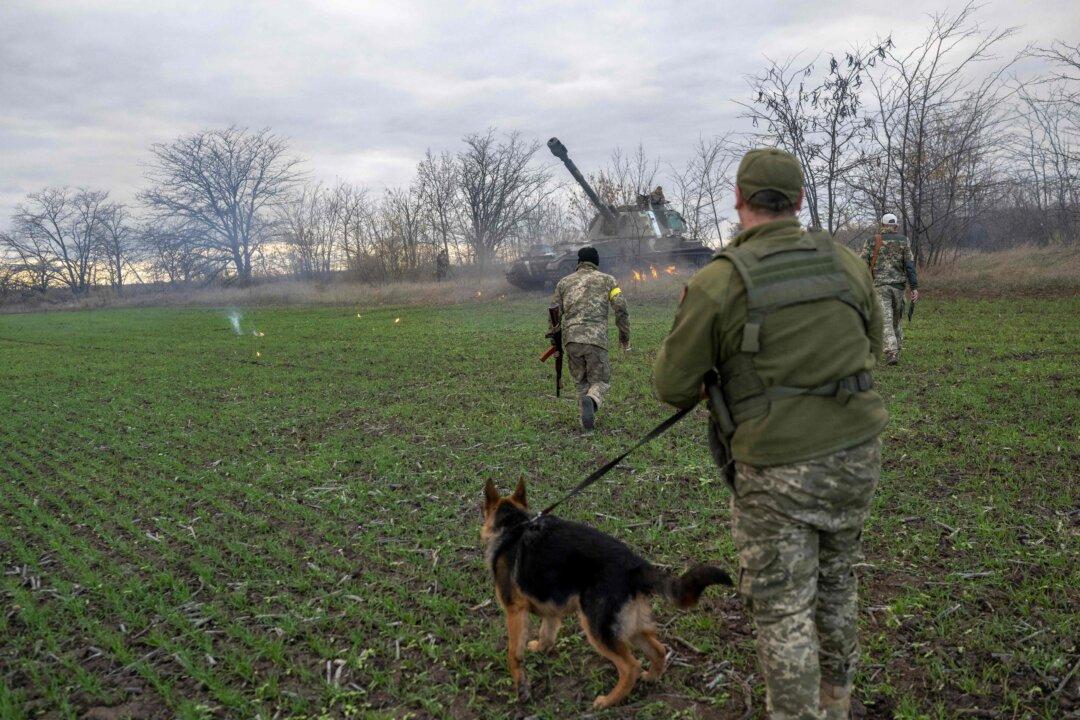Russia has fully withdrawn its forces from the west bank of the Dnieper River, including the strategic city of Kherson, according to the Russian Defense Ministry.
As Russian troops left, Ukrainian soldiers advanced and were greeted by jubilant civilians, according to reports and video footage from various Western media outlets including Reuters, AP, Germany’s DWNews, and the British Broadcasting Corp.





